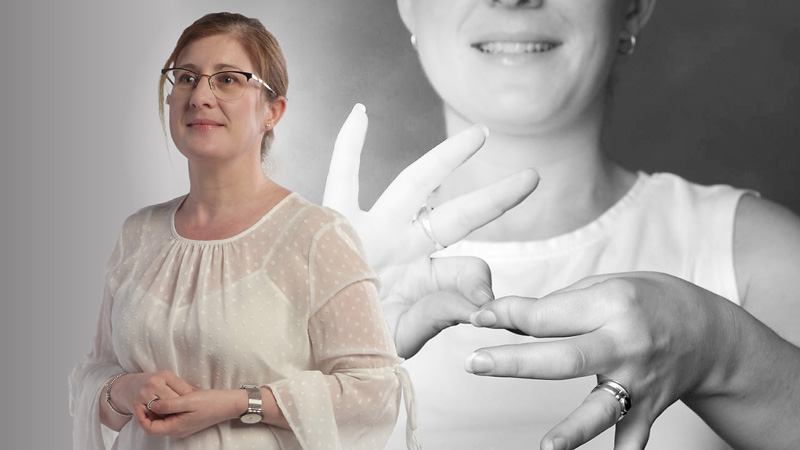Justice and Deaf Sign Language

Deaf Sign Language users face numerous communication barriers in their everyday lives, including interacting with the police. Professor Jemina Napier's research in sign language and intercultural communication is enabling deaf people to navigate the legal system in the UK and Australia – and become jurors.
In the UK, there are approximately 70,000 deaf people who use British Sign Language (BSL) as their first or preferred language. What do these people have in common? They face communicative and attitudinal barriers in all areas of life, including education, employment, the justice system and healthcare provision.
Professor Jemina Napier, in the Department of Languages and Intercultural Studies at Heriot-Watt University, is an expert in sign language and intercultural communication. Through her research, she is searching for ways to make society more inclusive for deaf sign people. “Research on sign language intercultural communication is important as it explores key issues concerning access, social justice, linguistic and cultural heritage for deaf sign language users,” she says.
One area where deaf people face severe limitations in society is in dealing with the police. Though the legal right to an interpreter has long since been established, this does not address the logistical, communication and knowledge-based issues deaf people face when interacting with police officers.
Napier has been collaborating with a team of international specialists to address the barriers that deaf people experience when coming face-to-face with the law, from not having enough interpreters to ensuring deaf people can properly communicate and understand their rights, to a lack of legal terminology in BSL itself.
One of the most important activities the group advocates for is knowledge sharing and training. To achieve this, JUSTISIGNS held a series of masterclasses and workshops for police officers and interpreters. The group has also helped develop best practice guidelines on legal interpreting.
JUSTISIGNS has also organised events and meetings to inform deaf people and other relevant organisations and professionals of the project. Napier's work has left an indelible mark on the UK and Europe's justice system, with police officers and deaf people alike praising the work JUSTISIGNS has delivered.
Napier is also looking to leave her mark on justice systems in Australia and other countries. Since 2006, she has been examining the feasibility of deaf people serving as jurors through sign language interpreters, in light of the fact it is currently illegal in both countries.
After conducting a series of studies to explore issues that might prevent deaf people from serving as jurors, e.g. linguistic, social, legal, Napier's research has demonstrated that there is no reason deaf people cannot serve as jurors. Further, there is no impediment to their participation as jurors if they access proceedings through an interpreter, and there is no negative impact to the jury deliberation process in having sign language interpreters present.
As a result of her research, an MP in South Australia has put forward a bill to change legislation in that State to allow deaf people to serve as jurors, and an MP in Wales is considering the same. The first deaf person was selected as a juror in Ireland in December 2017.
“This project – supported wholeheartedly by Heriot-Watt – could lead to significant achievement in terms of social justice for deaf sign language users worldwide,” Napier concludes.
Watch Professor Napier's Research Bite.
Key information
Jemina Napier
- Professor
- j.napier@hw.ac.uk